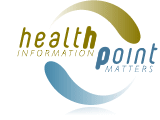
www.healthpoint.co.nz
Cardiology Institute
Phone (09) 980 6363 or 022 672 8255
Fax (09) 929 3248
Email consult@cardiologist.co.nz
Healthlink EDI: Cardinst
Contact us online here
GP Referrals:
- Email: consult@cardiologist.co.nz
- Fax: (09) 929 3248
- HealthLink EDI: cardinst
- MedTech SR Portal: Cardiology Institute
- Paper: Referral form in PDF
Same day ECG reporting service for GPs
Please email or fax ECG with both patient and practice details
Cardiac Arrhythmias: types, investigations and some treatments
A complex electric system within the heart muscle controls and coordinates your heart rate and heart muscle contraction. When you exert yourself, the heart rate increases; when you rest, it goes slower.
A number of conditions affect heart rate and/or rhythm. Heart rate simply refers to how fast your heart is beating. Heart rhythm refers to the electrical source that is driving the heart rate and whether or not it is regular or irregular.
As some types of arrhythmias can cause you to faint without warning, your doctor may restrict your driving until the condition is controlled.
Some common terms concerning arrhythmias
- Sinus rhythm is the normal rhythm
- Arrhythmia means abnormal rhythm
- Fibrillation means irregular rhythm or quivering of one part of the heart
- Bradycardia means slow heart rate
- Tachycardia means fast heart rate
- Paroxysmal means the arrhythmia comes and goes
Tachycardia
The most common form of tachycardia is atrial fibrillation. This is where your heart rhythm is irregular and often too fast. Symptoms include fatigue, palpitations (where you are aware of your heart racing or pounding), dizziness and breathlessness.
Other tachycardias include supraventricular tachycardia (SVT) or ventricular tachycardia (VT). These have similar symptoms as atrial fibrillation but can also cause you to lose consciousness (faint).
Bradycardia
The most common form of bradycardia is heart block. This is because messages from the electrical generator of the heart do not get through efficiently to the rest of the heart and hence the heart pump can go very slowly or may pause. Symptoms of the heart going too slowly include feeling tired, breathless or fainting.
Tests for arrhythmia
Tests to diagnose what sort of arrhythmia you have include:
- Electrocardiogram (ECG). This trace of the heart's electrical activity gives the diagnosis of the source of the arrhythmia. This is often normal at rest and more extensive testing is needed to try and catch the arrhythmia especially if it is intermittent.
- Ambulatory ECG. This can be performed with a Holter monitor which monitors your heart for abnormal rhythm during normal activity in an uninterrupted 24-hour period. During the test, electrodes attached to your chest are connected to a portable recorder - about the size of a wallet - that's attached to your belt or hung from a shoulder strap. Another form of ambulatory ECG test is an Event recorder which covers 1-2 weeks. If you have any symptom, such as dizziness, you press a button on a recording device that records your heart rhythm made in the minutes leading up to and during your symptoms. Because you can wear this for a longer period of time it has a higher rate of catching your abnormal rhythm.
Treatment of arrhythmia
Most treatments for tachycardias consist of medications to stop the abnormal rhythm or make it slower when it occurs. Atrial fibrillation may increase your stroke risk, so blood-thinning medication is often used as well.
Some of the faster heart rhythms (tachycardias) can be treated with radiofrequency ablation. This entails a controlled 'burn' on the inside of the heart to disrupt the abnormal electrical short-circuit
If you have bradycardia, you may be referred for a pacemaker implantation. This is a small operation where a battery powered device is placed under the skin with wires that lead to your heart and provide it with electrical stimulation to prevent it from going too slowly. You cannot feel it doing this but will be aware of a small flat lump under your skin just below your collar bone.
https://healthpoint.co.nz/private/cardiology/cardiology-institute/

